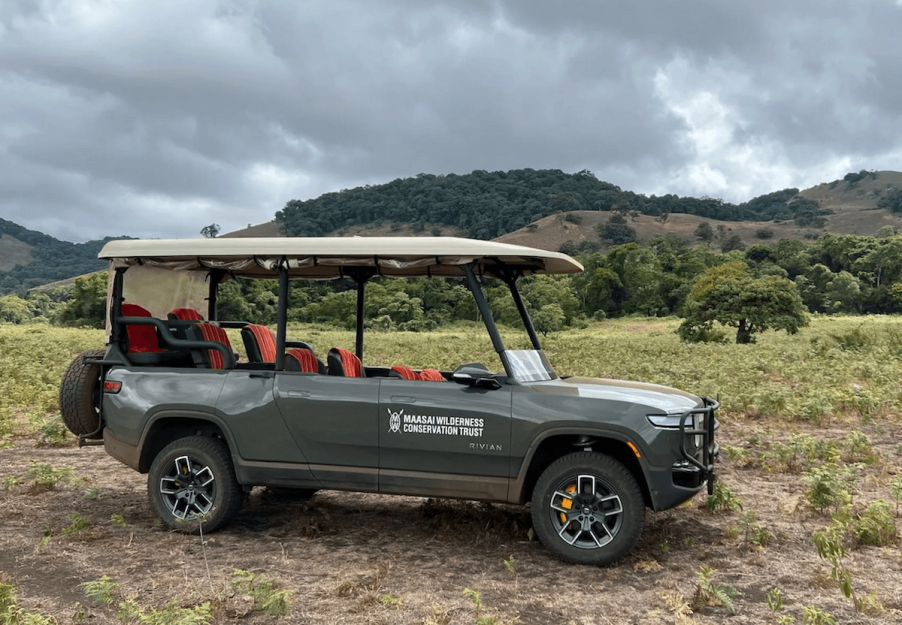
Cutting the Roof Off a Rivian R1T Pickup Was the Best Option
One of the top reasons to own a pickup truck is its versatility. Oh, and personalization opportunities. Truckmakers’ ads beg you to make your truck your own. Well, this East African wilderness group took that to heart and made this Rivian R1T pickup truck its own by hacking off the top.

We shouldn’t say “hacking,” which conjures up taking a hacksaw or ax to the top. No, the top of this Rivian was cut off, and done for a purpose. The Maasai Wilderness Conservation Trust wanted an open-air safari wagon. But “conservation” is in its name, so some diesel- or gasoline-powered safari wagon doesn’t cut it.
But the Rivian R1T pickup offered the basis for what it really wanted, an emissions-free safari wagon. And there was a bonus to slicing off the roof, it allowed for an additional row of seats. So now the modified Rivian is a four-row with seating for seven plus the driver.

But there’s something even more unique about this Rivian, it is the only one that is right-hand drive. It’s hard to see in the images provided but it looks like a clean conversion from left to right. You can also see the capped B-pillars, also cleanly done.
And the rear doors still function. We suspect that additional support underneath helps to maintain some rigidity. After all, going through rocky off-road terrain means without support this thing would wiggle like a spaghetti noodle. Old phaetons from the 1920s and 1930s, which were open four-doors like this, tied the B-pillars to the front seat tub. Later, they used cast iron B-pillars tied to the frame.

Anyway, the power to generate the electricity for the battery comes from the sun. There are no massive generators or nuclear-derived electrical sources involved. So this is a completely clean emissions-free EV front to back.
A short windshield and brush guard add both practical and visual highlights. The tall canvas top is supported by bent tubing much like roll bars. Side curtains protect passengers in case of rain, wind, or dust storms. Bent tube guards protect those sitting tall in the rear. Behind those rear passengers is a swing-out spare tire, which doubles as a base for the top.

According to the release, the Maasai Wilderness Conservation Trust has more uses for it than sightseeing. The Rivian is also used in Kenya for “quiet anti-poaching patrols, zero tailpipe-emissions transport for Maasai firefighters, and critical on-and off-road rangers’ operations, to health and education programs.”
The open-air safari wagon is a slick-looking, clean, and functional vehicle we expect to see more of for other applications down the road.



